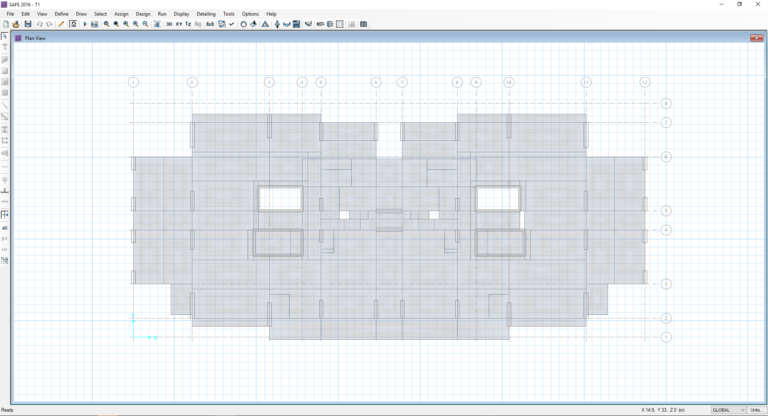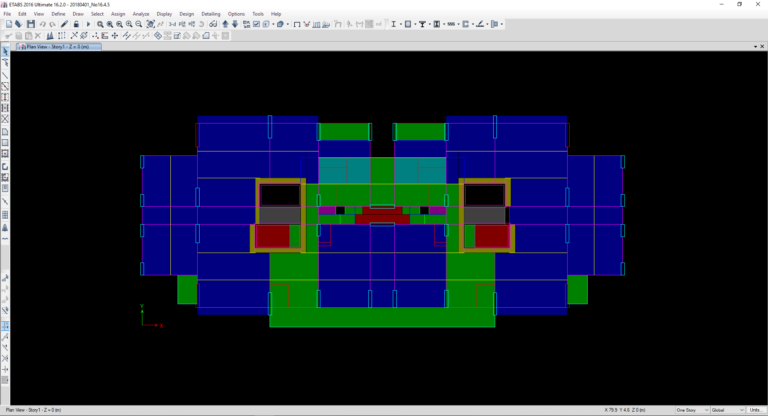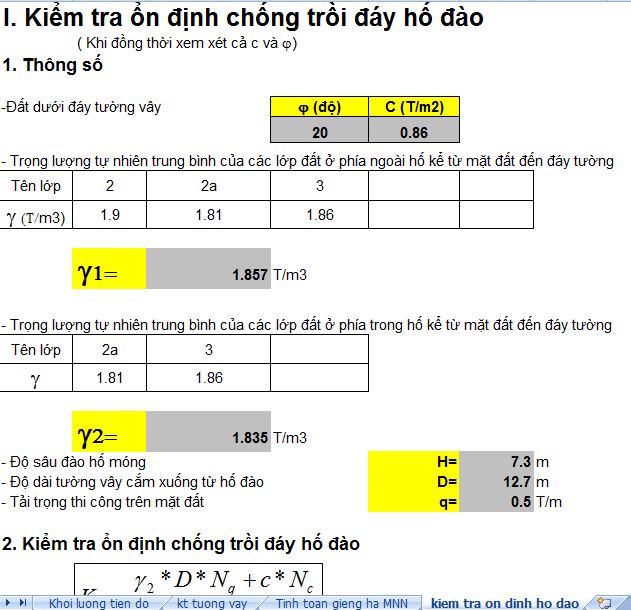Topic Irs mid february where's my refund: \"Exciting news! The IRS is diligently working to process your tax refund, especially if you claimed the Earned Income Tax Credit (EITC). By mid-February, you can expect to receive your well-deserved refund. If you\'re unsure whether you qualify for the EITC, don\'t worry! The IRS offers helpful information to determine your eligibility. Stay positive and keep an eye out for your mid-February refund!\"
Table of Content
- How can I track my IRS refund status in mid-February?
- What is the significance of mid-February when it comes to receiving IRS tax refunds?
- How does claiming the Earned Income Tax Credit (EITC) or Additional Child Tax Credit (ACTC) impact the timing of tax refunds?
- YOUTUBE: Where\'s My Tax Refund?
- What is the earliest date I can expect to receive my tax refund if I claimed the EITC or ACTC?
- Are there any specific eligibility requirements to qualify for the EITC?
- How can I check the status of my tax refund if I filed in mid-February?
- Are there any factors that might cause a delay in receiving a tax refund, aside from claiming the EITC or ACTC?
- Can I receive my tax refund earlier than mid-February if I did not claim the EITC or ACTC?
- Is there a way to expedite the processing of my tax refund?
- What should I do if I haven\'t received my tax refund by the end of February?
How can I track my IRS refund status in mid-February?
To track your IRS refund status in mid-February, follow these steps:
1. Visit the official IRS website: Start by opening a web browser and going to the official IRS website, which is www.irs.gov.
2. Locate the \"Refunds\" section: On the IRS homepage, look for a section labeled \"Refunds\" or use the website\'s search function to search for \"Where\'s My Refund.\"
3. Click on \"Where\'s My Refund\": Once you find the \"Refunds\" section, click on the \"Where\'s My Refund\" link. This will direct you to the refund tracking tool.
4. Enter your information: On the \"Where\'s My Refund\" page, you will be asked to enter specific information to access your refund status. This usually includes your Social Security Number, filing status, and the exact amount of your expected refund.
5. Validate your information: After entering your details, click the \"Submit\" or \"Check Refund Status\" button to validate the information you provided.
6. Check your refund status: Once your information is validated, the tool will display the status of your refund. It will indicate whether your refund has been processed, approved, or if further action is needed.
7. Track your refund\'s progress: If your refund has been processed and approved, you can track its progress. The tool may provide an estimated date for when you can expect to receive your refund, or it may prompt you to wait a few more days and check back.
Please note that the IRS updates refund statuses once per day, usually overnight. Checking more frequently will not yield new information. Additionally, refunds for certain filers, such as those claiming the Earned Income Tax Credit (EITC) or the Additional Child Tax Credit (ACTC), may not be issued until mid-February, as mentioned in the search results.
It is important to remember that the IRS refund tracking tool is the official way to check your refund status. Be cautious of any other websites or services that claim to provide faster or more accurate information, as they may not be reliable or legitimate.
READ MORE:
What is the significance of mid-February when it comes to receiving IRS tax refunds?
The significance of mid-February when it comes to receiving IRS tax refunds is related to tax credits such as the Earned Income Tax Credit (EITC) and the Additional Child Tax Credit (ACTC). These credits are often claimed by taxpayers who meet certain income requirements and have qualifying dependents.
The IRS has implemented a law that requires them to wait until mid-February to issue refunds to taxpayers who claim the EITC or ACTC. This delay is designed to allow the IRS to verify the eligibility and accuracy of these specific tax claims, as they are often prone to errors or fraudulent activity.
Therefore, if you have claimed either the EITC or ACTC on your tax return, you can expect a delay in receiving your refund. The IRS states that taxpayers who claim these credits can expect to receive their refund by February 28th. This is why many people anticipate updates and information regarding their refund status around mid-February.
It is important to note that this delay only affects taxpayers who have claimed the EITC or ACTC. If you haven\'t claimed these credits, you may receive your refund before mid-February, depending on various factors such as the accuracy of your return and the method of refund you chose (e.g., direct deposit, check).
To check the status of your refund, you can use the \"Where\'s My Refund?\" tool on the official IRS website, which provides updates on the progress of your return and estimated refund date.
How does claiming the Earned Income Tax Credit (EITC) or Additional Child Tax Credit (ACTC) impact the timing of tax refunds?
When you claim the Earned Income Tax Credit (EITC) or the Additional Child Tax Credit (ACTC), it can impact the timing of your tax refund. The IRS is required by law to wait until mid-February to issue refunds to taxpayers who claim these credits. This delay is to allow the IRS enough time to verify the accuracy of the claims and prevent fraudulent activity.
Here\'s a step-by-step explanation of how claiming the EITC or ACTC affects the timing of tax refunds:
1. Income Tax Return Filing: First, you need to file your income tax return with the IRS, including all the necessary information and documentation.
2. Claiming the EITC or ACTC: If you are eligible for the Earned Income Tax Credit or the Additional Child Tax Credit, you can include these credits on your tax return when you file. These credits are designed to provide financial assistance to low-income individuals or families.
3. Processing and Verification: Once the IRS receives your tax return, they will begin processing and verifying the information. This involves reviewing your income, deductions, credits, and other details provided on the return. They may also cross-check the information with third-party sources, such as employers or financial institutions.
4. Mid-February Hold: If you have claimed the EITC or ACTC, the IRS is required to hold your refund until mid-February. This allows them sufficient time to ensure that the claims are accurate and comply with tax laws. The hold is in place to prevent fraudulent claims and protect taxpayers\' money.
5. Refund Issue Date: After the mid-February deadline, the IRS will start issuing refunds to eligible taxpayers who claimed the EITC or ACTC. If there are no other issues or errors with your return, you can expect to receive your refund by February 28th.
It\'s important to note that the mid-February hold does not necessarily mean that there is something wrong with your tax return. It is a standard procedure for the IRS to properly review and verify claims for these credits before issuing refunds. However, if there are any discrepancies or errors found during the review process, it may delay your refund further.
If you are concerned about the status of your refund, you can use the \"Where\'s My Refund\" tool on the IRS website. It allows you to track the progress of your refund and provides an estimated issue date.
Where\'s My Tax Refund?
Discover how you can maximize your savings this year by watching our informative video on tax refunds. We\'ll guide you through the process of claiming deductions and credits, ensuring you receive the maximum refund you deserve. Don\'t miss out on this valuable opportunity – start watching now!
What\'s IRS Mid-February 2023 - Here\'s When Your Tax Refund Will Be Issued
Curious about when to expect your tax refund? Our video provides all the answers you need, with a focus on the IRS mid-February timeline. Stay informed and learn about the factors that influence the processing of your refund, so you can plan accordingly. Get peace of mind by watching our video today!
What is the earliest date I can expect to receive my tax refund if I claimed the EITC or ACTC?
Based on the Google search results, if you claimed the Earned Income Tax Credit (EITC) or the Additional Child Tax Credit (ACTC), the earliest date you can expect to receive your tax refund is in mid-February. However, it is important to note that the specific date may vary depending on the IRS\'s processing time and any potential delays. To get the most accurate information regarding your refund, it is recommended to use the IRS\'s \"Where\'s My Refund\" tool on their website. This tool allows you to track the status of your refund by entering your Social Security number, filing status, and the exact refund amount. It will provide you with the most up-to-date information on the status and expected date of your refund.
Are there any specific eligibility requirements to qualify for the EITC?
Yes, there are specific eligibility requirements to qualify for the Earned Income Tax Credit (EITC). The EITC is a tax credit for low to moderate-income individuals and families. Here are the key requirements:
1. Earned Income: You must have earned income from employment, self-employment, or certain disability benefits. Unearned income, such as investment income, does not qualify.
2. Income Limit: Your income must fall within certain limits set by the IRS. The income limits depend on your filing status (single, married filing jointly, head of household, etc.) and the number of qualifying children you have.
3. Filing Status: You must file a tax return using one of the eligible filing statuses designated by the IRS. Typically, this includes single, married filing jointly, head of household, or qualifying widow(er) with dependent child.
4. Citizenship and Residency: You must be a U.S. citizen or resident alien for the entire tax year, unless married and filing jointly with a U.S. citizen or resident alien spouse. There are some exceptions for certain nonresident aliens.
5. Valid Social Security Number: Each individual you claim for the EITC must have a valid Social Security Number (SSN). This includes yourself, your spouse (if applicable), and any qualifying children.
6. Age Requirement: You and your spouse (if applicable) must be between the ages of 25 and 65 at the end of the tax year, unless you have a qualifying child.
7. Child Requirements: If you have qualifying children, they must meet certain criteria. They must be your biological or adopted child, stepchild, foster child, sibling, or descendant of any of them. They must also meet age, residency, and relationship tests.
It\'s important to note that these are just the basic eligibility requirements for the EITC. There may be additional rules and guidelines that apply based on your specific circumstances. It\'s recommended to consult the official IRS guidelines or seek professional tax advice to determine your eligibility and ensure accurate filing.
_HOOK_
How can I check the status of my tax refund if I filed in mid-February?
To check the status of your tax refund if you filed in mid-February, you can follow these steps:
1. Visit the \"Where\'s My Refund?\" page on the official IRS website. You can access it by going to www.irs.gov/refunds.
2. On that page, you will find a \"Check My Refund Status\" button. Click on it to proceed.
3. You will be asked to provide your Social Security number or Individual Taxpayer Identification Number (ITIN), your filing status, and the exact refund amount you are expecting. Fill in the required information accurately.
4. After entering the necessary details, click on the \"Submit\" or \"Check Status\" button.
5. The next page will display the current status of your refund. It will inform you if the refund has been approved, if it is still being processed, or if there are any issues that need to be resolved.
6. In some cases, the website may provide additional instructions or requests for further information. Make sure to follow any instructions given if necessary.
7. Keep in mind that the IRS updates refund information once a day, typically overnight, so check back regularly for updated status information.
Alternatively, you can also check your refund status by calling the IRS Refund Hotline at 1-800-829-1954. This automated system provides updates on refund status based on the same information as \"Where\'s My Refund?\" tool.
Remember to have your Social Security number or ITIN, filing status, and the exact refund amount handy when using either method.
Are there any factors that might cause a delay in receiving a tax refund, aside from claiming the EITC or ACTC?
Yes, there are several factors that might cause a delay in receiving a tax refund, aside from claiming the Earned Income Tax Credit (EITC) or Additional Child Tax Credit (ACTC). Some common factors include:
1. Incorrect or incomplete information: If you made errors or omissions on your tax return, such as providing incorrect bank account information or failing to include all necessary forms, the IRS may need to process your return manually, which can result in a delay.
2. Missing or late documentation: If you fail to include all the required supporting documentation with your tax return, it may take longer for the IRS to review and process your refund.
3. Identity verification: In an effort to prevent fraud, the IRS occasionally requires additional identity verification for certain taxpayers. If you are selected for this process, you may need to provide additional documentation, such as copies of identification documents, which can delay your refund.
4. Errors or discrepancies in the return: If the IRS identifies errors or discrepancies in your tax return, such as mismatched income reported by your employer, they may need to conduct a more in-depth review, resulting in a delay in processing your refund.
5. Prior-year debts: If you owe certain debts, such as back taxes or child support, the IRS may offset your refund to satisfy these obligations. This can delay or reduce the amount of your refund.
6. Incomplete prior-year returns: If you have any outstanding prior-year tax returns that have not been filed, the IRS may hold your current-year refund until these returns are completed and processed.
It is important to note that each individual\'s tax situation is unique, and the above factors are not an exhaustive list. If you have concerns about the status or delay of your refund, it is recommended to contact the IRS directly or consult a tax professional for personalized assistance.
Can I receive my tax refund earlier than mid-February if I did not claim the EITC or ACTC?
Yes, you can receive your tax refund earlier than mid-February if you did not claim the Earned Income Tax Credit (EITC) or the Additional Child Tax Credit (ACTC). The mid-February timeframe is only applicable to taxpayers who claimed either of these credits.
To receive your tax refund earlier, you should file your tax return as early as possible. The earlier you file, the earlier the IRS can process your return and issue your refund. Typically, the IRS starts accepting tax returns in late January. Once they receive your return, they will review it and process your refund if everything is in order.
To file your tax return, gather all necessary documents such as W-2 forms, 1099 forms, and any other income or deduction records. You can file your tax return electronically through various software programs or use the traditional paper filing method. Electronic filing is generally faster and more convenient.
After filing your return, you can track the status of your refund using the \"Where\'s My Refund?\" tool on the IRS website. This tool gives you real-time updates on the progress of your refund. It usually takes up to 21 days for the IRS to issue your refund once they have accepted your return.
So, if you didn\'t claim the EITC or ACTC and file your return early, there is a good chance that you can receive your tax refund earlier than mid-February.
Is there a way to expedite the processing of my tax refund?
While there isn\'t a guaranteed way to expedite the processing of your tax refund, there are a few things you can do to potentially speed up the process:
1. File your tax return electronically: Filing your tax return electronically is generally faster than filing a paper return. E-filing allows the IRS to process your return more quickly and accurately.
2. Double-check your tax return for errors: Ensure that all the information on your tax return is accurate and complete. Errors or missing information can cause delays in the processing of your refund.
3. Use direct deposit: Opting for direct deposit will get your refund deposited directly into your bank account. This method is faster than receiving a paper check through mail.
4. Avoid amending your return unless necessary: If you have made a mistake on your tax return, it may be tempting to file an amendment right away. However, unless the correction is essential, it\'s generally best to wait until after you receive your refund.
5. Use the Where\'s My Refund tool: The IRS provides an online tool called \"Where\'s My Refund,\" which allows you to track the status of your refund. It provides updates on when your return was received, approved, and when your refund is expected to be issued.
6. Avoid calling the IRS unless necessary: The IRS receives a high volume of calls during tax season, which can lead to long wait times. Instead, utilize online resources and tools available on the IRS website for the most up-to-date information.
Remember, the timing of your refund ultimately depends on several factors, including the complexity of your return, any potential errors, and whether you claimed certain credits. Following these steps can help minimize delays, but it\'s important to remain patient and allow the IRS sufficient time to process your tax return.
READ MORE:
What should I do if I haven\'t received my tax refund by the end of February?
If you haven\'t received your tax refund by the end of February, there are a few steps you can take:
1. Check the status of your refund: Visit the IRS website and use their \"Where\'s My Refund?\" tool. This tool allows you to track the progress of your refund by entering your Social Security number, filing status, and the exact amount of your refund.
2. Contact the IRS: If the \"Where\'s My Refund?\" tool does not provide any information or if there is a discrepancy, you can contact the IRS directly. Their phone number for refund inquiries is 1-800-829-1954. Be prepared to provide your personal information and any relevant tax documents.
3. Allow additional time: If you claimed the Earned Income Tax Credit (EITC) or the Additional Child Tax Credit (ACTC), it is possible that your refund will be delayed until mid-February or later. The laws surrounding these credits require the IRS to hold refunds until at least mid-February to combat fraud. If you fall into this category, it is recommended to wait until mid-February before contacting the IRS.
4. Review your tax return: Ensure that your tax return was accurately completed and submitted. Double-check for any errors or missing information that could potentially delay your refund. If you discover any mistakes, you may need to file an amended tax return.
5. Consider direct deposit: If you opted for direct deposit when filing your tax return, refunds are usually processed faster compared to receiving a paper check in the mail.
Remember to remain patient and avoid scams: The IRS will not initiate contact by phone, email, or social media to request personal or financial information. Be cautious of anyone claiming to be the IRS and asking for sensitive data.
Please note that the information provided is based on general knowledge and that specific circumstances may vary. It is always best to consult with a tax professional or the IRS for personalized advice.
_HOOK_













